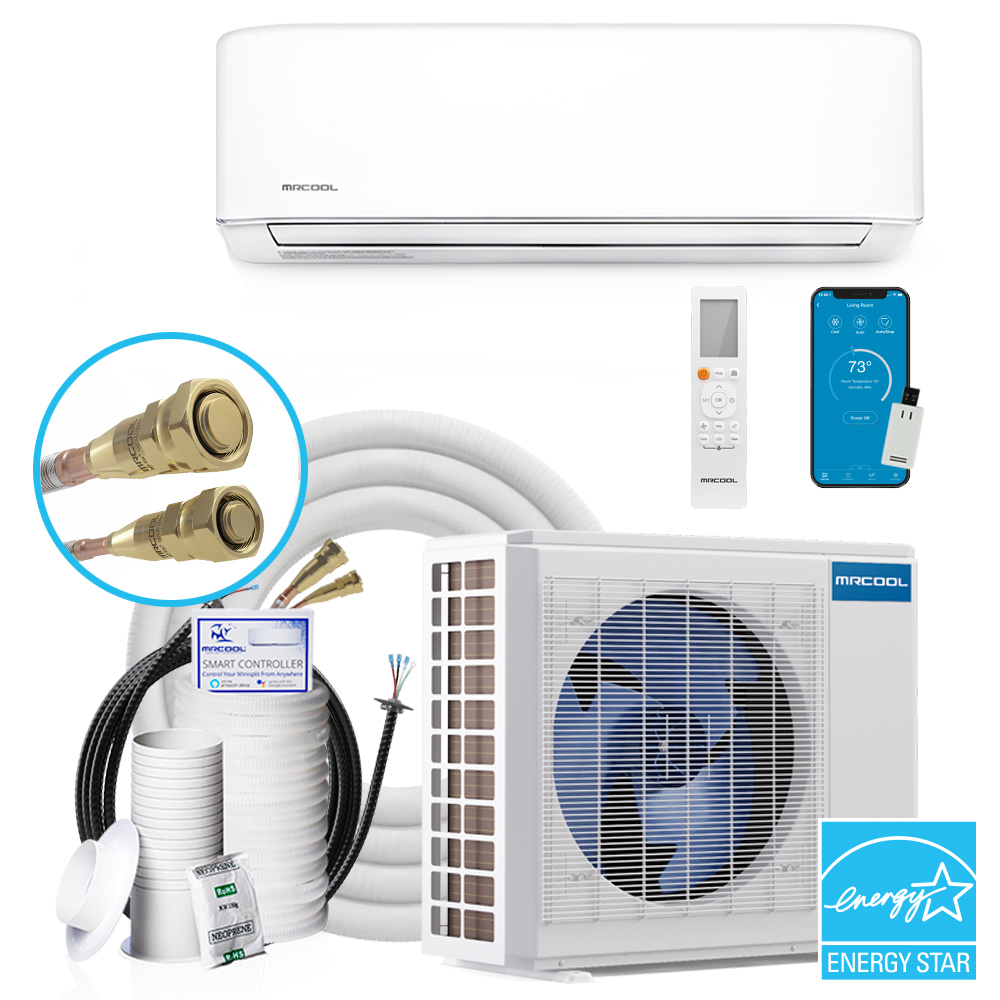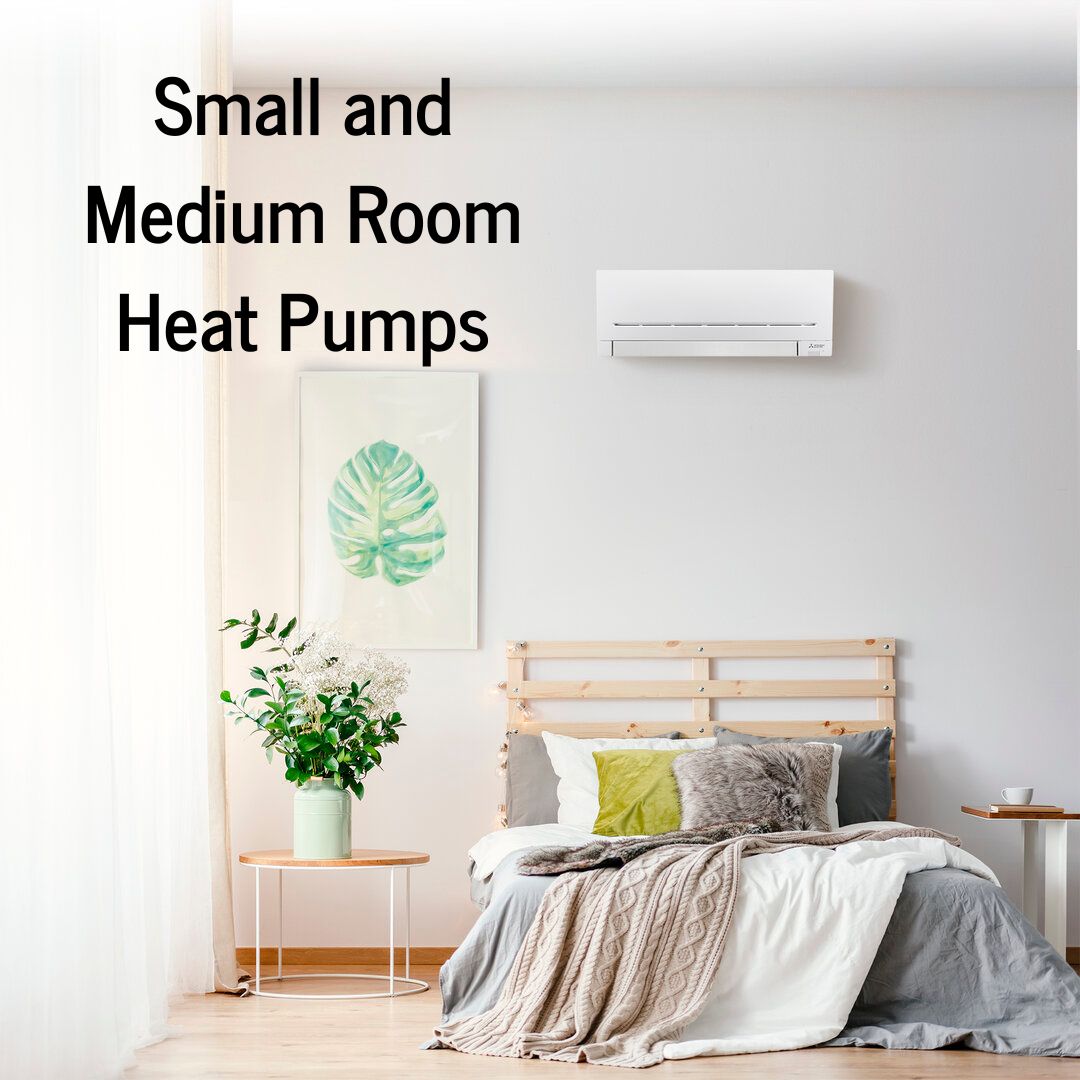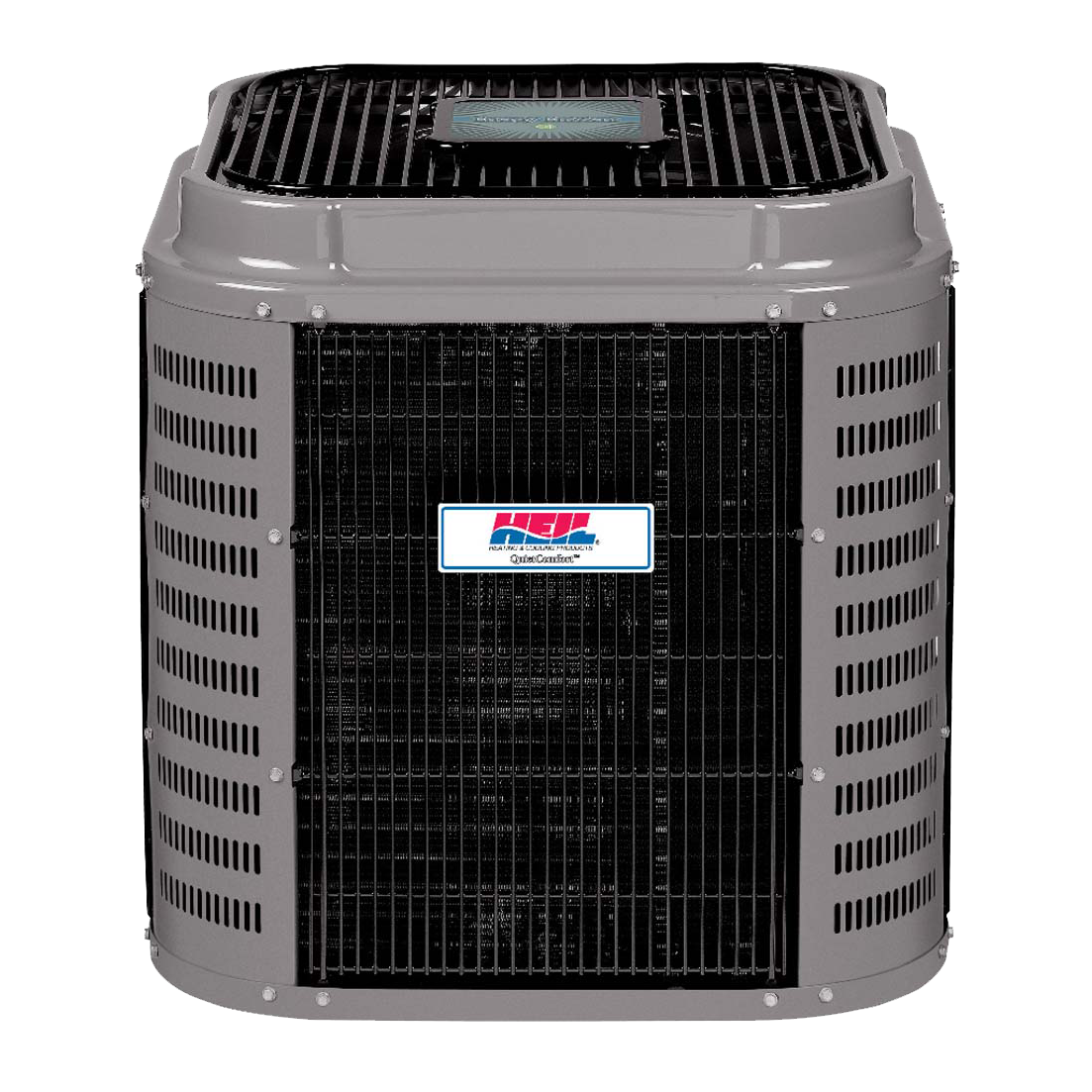Understanding Small Heat Pumps for Bedrooms: Small Heat Pump For Bedroom

Small heat pumps are becoming increasingly popular for providing comfortable and energy-efficient heating and cooling in bedrooms. These compact units offer a range of benefits, making them an attractive option for homeowners looking to improve their indoor comfort while reducing their energy consumption.
Basic Principles of Heat Pump Operation
Heat pumps work on the principle of transferring heat from one location to another, using a refrigerant cycle. The refrigerant absorbs heat from the air outside (during heating) or inside (during cooling) and then releases it into the air inside the bedroom. This process is similar to how a refrigerator works, but in reverse.
Advantages of Using a Small Heat Pump in a Bedroom
Small heat pumps offer several advantages for bedroom comfort and energy efficiency:
- Quiet Operation: Small heat pumps are designed to operate quietly, ensuring a peaceful sleep environment.
- Precise Temperature Control: They allow for precise temperature control, enabling you to set the desired temperature for optimal comfort.
- Year-Round Comfort: Heat pumps provide both heating and cooling, making them suitable for use throughout the year.
- Energy Efficiency: Heat pumps are highly energy-efficient, as they use less electricity than traditional heating and cooling systems.
Energy Efficiency and Cost Savings, Small heat pump for bedroom
Heat pumps are known for their high energy efficiency, typically measured by a Seasonal Energy Efficiency Ratio (SEER). A higher SEER rating indicates greater energy efficiency. For example, a heat pump with a SEER of 18 will use less electricity than one with a SEER of 13, resulting in lower energy bills.
The energy efficiency of a heat pump is significantly influenced by factors such as the climate, insulation levels of the home, and proper maintenance.
The energy savings associated with heat pumps can be substantial, particularly in regions with moderate climates. For example, a homeowner in a region with a moderate climate could potentially save hundreds of dollars annually on their energy bills by switching from a traditional heating and cooling system to a heat pump.
Choosing the Right Small Heat Pump

Selecting the right small heat pump for your bedroom is crucial for ensuring optimal comfort and energy efficiency. Understanding the different types of heat pumps available and considering key factors will help you make an informed decision.
Types of Small Heat Pumps
There are several types of small heat pumps suitable for bedrooms, each with its own advantages and disadvantages.
- Mini-split systems are a popular choice for bedrooms, offering individual temperature control for each room. They consist of an indoor unit mounted on the wall and an outdoor unit that houses the compressor. Mini-split systems are known for their quiet operation, energy efficiency, and ability to heat and cool effectively.
- Ductless heat pumps are similar to mini-split systems but can accommodate multiple indoor units connected to a single outdoor unit. This allows you to heat or cool several rooms independently. Ductless systems are a versatile option for homes with limited or no existing ductwork.
- Window units are the most affordable type of small heat pump. They are easy to install and remove, making them ideal for renters or those who want a temporary solution. However, window units can be noisy and less energy-efficient than mini-split or ductless systems.
Factors to Consider When Choosing a Small Heat Pump
When selecting a small heat pump for your bedroom, several factors are essential to consider:
- Room size: The size of your bedroom will determine the BTU (British thermal unit) rating required for adequate heating and cooling. A BTU rating is a measure of heat energy, and a higher rating indicates a more powerful unit.
- Heating and cooling needs: Consider your climate and personal preferences. If you live in a region with extreme temperatures, you’ll need a more powerful unit to maintain comfort. If you prefer a cooler sleeping environment, a heat pump with a lower BTU rating might suffice.
- Budget: Heat pumps come in a wide range of prices, depending on the features, brand, and type. Set a budget before shopping to ensure you choose a unit that fits your financial constraints.
- Energy efficiency: Look for a heat pump with a high SEER (Seasonal Energy Efficiency Ratio) rating. A higher SEER rating indicates greater energy efficiency, leading to lower energy bills over time.
- Noise level: If noise is a concern, consider a heat pump with a low decibel rating. Mini-split and ductless systems are generally quieter than window units.
- Ease of installation: If you are not comfortable with DIY projects, consider a heat pump that requires professional installation. Mini-split and ductless systems typically require professional installation, while window units can be installed by homeowners.
Determining the Appropriate BTU Rating
The BTU rating of a heat pump is a critical factor in determining its ability to heat and cool your bedroom effectively. To estimate the appropriate BTU rating for your bedroom, consider the following factors:
- Room size: The size of your bedroom is the most significant factor in determining BTU requirements. A general rule of thumb is to multiply the room’s square footage by 20 to 25 to estimate the required BTU rating. For example, a 100-square-foot bedroom would need a heat pump with a BTU rating of 2,000 to 2,500.
- Climate: The climate you live in will also influence BTU requirements. In warmer climates, you’ll need a higher BTU rating for cooling, while in colder climates, you’ll need a higher rating for heating.
- Ceiling height: Higher ceilings require more BTU to heat and cool a room effectively.
- Insulation: Well-insulated rooms require less BTU than poorly insulated rooms.
- Window size and direction: Large windows facing south or west receive more sunlight and heat, requiring a higher BTU rating.
For accurate BTU estimates, it’s recommended to consult with a qualified HVAC professional. They can assess your specific needs and recommend the appropriate heat pump size for your bedroom.
Installation and Maintenance

Installing and maintaining a small heat pump in your bedroom is crucial for ensuring its longevity and optimal performance. Proper installation ensures efficient operation, while regular maintenance prevents potential issues and extends the life of your heat pump.
Installation Process
The installation process for small heat pumps in bedrooms can vary depending on the type of heat pump.
- Split-system heat pumps are the most common type for bedrooms. They consist of two units: an indoor unit that handles air circulation and an outdoor unit that houses the compressor. The installation process involves mounting the indoor unit on the wall or ceiling and connecting it to the outdoor unit using refrigerant lines. The outdoor unit is typically placed on a patio or balcony.
- Ductless mini-split heat pumps are similar to split-system heat pumps but offer more flexibility in placement. They can be installed in various locations, including walls, ceilings, or even floors. These units have a single indoor unit that connects to an outdoor unit, eliminating the need for ductwork.
- Window heat pumps are the simplest to install. They are essentially portable units that are installed in a window opening. These heat pumps do not require any specialized installation and can be plugged into a standard electrical outlet.
Maintenance Practices
Regular maintenance is essential for ensuring optimal performance and extending the life of your small heat pump.
- Filter cleaning: Regularly clean the air filter, as a dirty filter can restrict airflow and reduce efficiency. It is recommended to clean the filter every 1-3 months, depending on usage and environmental conditions.
- Outdoor unit cleaning: Ensure the outdoor unit is free of debris, leaves, and other obstructions. This prevents airflow blockage and overheating.
- Refrigerant check: Regularly check the refrigerant levels. Low refrigerant levels can lead to reduced cooling and heating performance. It is recommended to have a professional technician check the refrigerant levels annually.
- Annual inspection: Schedule an annual inspection by a qualified technician to ensure your heat pump is operating efficiently and safely.
Troubleshooting Common Issues
Small heat pumps can experience various issues, which can be identified and addressed through troubleshooting.
- No power: Check the power supply and ensure the circuit breaker is not tripped. If the power supply is working, the issue could be with the internal components.
- Weak airflow: Check the air filter and ensure it is clean. If the filter is clean, the issue could be with the fan motor or a blockage in the air ducts.
- Freezing: If the indoor unit is freezing, the refrigerant levels may be low or the drain line could be blocked.
- Unusual noises: Unusual noises from the heat pump could indicate a mechanical issue, such as a worn-out fan motor or a loose component.
Small heat pump for bedroom – A small heat pump for your bedroom can be a great way to keep cozy in the winter and cool in the summer. You might also want to consider getting a small cabinet for bedroom to help organize your space and keep things tidy.
Once you have the perfect temperature and a clutter-free environment, you can truly enjoy your bedroom oasis.
A small heat pump can make your bedroom a cozy haven, especially during colder months. If you’re aiming for a tranquil and stylish space, consider incorporating elements of modern blue green bedroom decor , which blends calming hues with sleek lines.
A small heat pump, discreetly tucked away, won’t disrupt the serene ambiance you’re creating.
